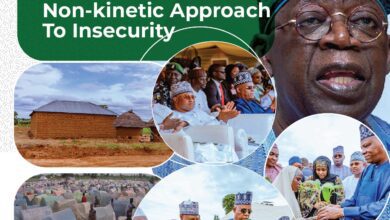OPINION: A Patriotic Call To Regulate P2P Crypto Market In Nigeria

One of the drawbacks of a free or unregulated market is uncertainty-cum- instability. Unlike other markets that are heavily regulated in Nigeria, the Peer-to-Peer (P2P) crypto market is unregulated, leaving it open to all kinds of manipulative practices.
P2P crypto exchanges allow buyers and sellers to trade cryptocurrencies directly. They operate as online marketplaces, enabling traders to set their own terms.
P2P platforms like Binance, KuCoin, Bybit, OKX, Huobi, and Noones often support a much wider range of payment methods than traditional exchanges.
Investors from all over the world are eager to trade in this rapidly increasing market as a result of its growing popularity.
According to Coin Market Cap, there are already about 9,000 cryptocurrencies with a market value of almost $2 trillion.
As mouth-watering as this market may appear to be, its deceptive and destructive activities have not only led to financial losses but have resulted in naira depreciation and devaluation in Nigeria.
With the current foreign exchange crisis in the country, the need for proper regulation of the P2P crypto market has become more compelling.
In the country’s unregulated P2P crypto market, a manipulative tactic known as spoofing casts a long shadow. Here, individuals or groups place large buy or sell orders on the platform without intending to execute them.
This creates a false illusion of high demand or abundance, influencing others to buy or sell at manipulated prices. This deceptive practice, often used in conjunction with pump-and-dump schemes, preys on unsuspecting investors, leaving them with significant financial losses and as in the case of the Naira, has resulted in creating Fear of Missing Out (FOMO) and price depreciation and devaluation.
The previous Central Bank of Nigeria (CBN) guidelines, while aiming to curb banking involvement with crypto, leave the P2P space largely unsupervised and taken over by unprofessional people profiting at the back of the country.
This regulatory vacuum allows spoofing and other manipulative tactics to flourish in the P2P market, jeopardizing the integrity of the market and eroding investor confidence.
A review of the existing guidelines is crucial to address this Wild West situation. Implementing stricter measures for P2P platforms, robust transaction monitoring systems, and clear penalties for spoofing would deter such activities and foster a safer trading environment.
CBN’s intervention is not just about protecting investors but also safeguarding Nigeria’s financial stability. The potential of the crypto industry cannot be ignored, but its growth must be accompanied by responsible regulations.
Addressing spoofing and other manipulative practices through a revised regulatory framework is essential to ensure the sustainable and healthy development of Nigeria’s P2P crypto market.
Developed countries like the United Kingdom, Japan, Canada, and Singapore
have all taken regulatory measures to keep these platforms in check.
For instance, Binance is prohibited in the United Kingdom by the Financial Conduct Authority from conducting any regulated activities.
In Japan, the Financial Services Agency (FSA) banned Binance from operating without the necessary regulatory approval.
Canada has also suspended Binance services following its inability to meet the province’s securities regulation criteria.
The Monetary Authority of Singapore also banned Singaporean investors from accessing Binance’s services.
Nigeria must not be an exception. These platforms, especially, Binance must not be allowed to dictate the value of Nigeria’s currency, the Naira, not on its crypto exchange platform.
Other crypto platforms such as KuCoin and Bybit should also be banned from operating in the nation’s cyberspace. Even the FX platform, Aboki should be re-banned.
To strengthen the nation’s Naira, spoofing and other manipulative practices must be stopped. The Economic and Financial Crimes Commission (EFCC), and the CBN must move against these platforms trying to manipulate the country’s national currency.
Sunday Etuka is the Editor/Publisher of TheFact Daily/Magazine






